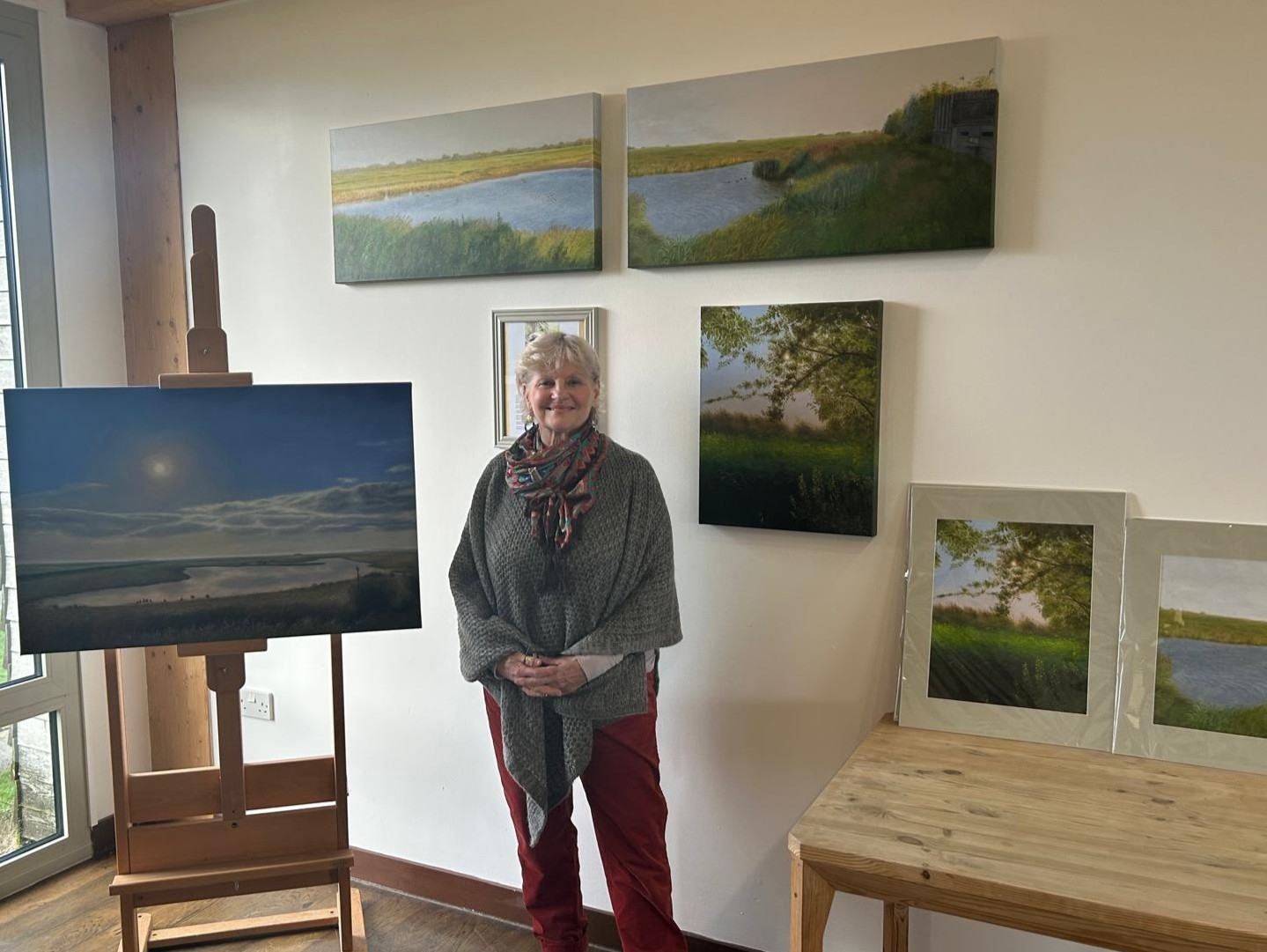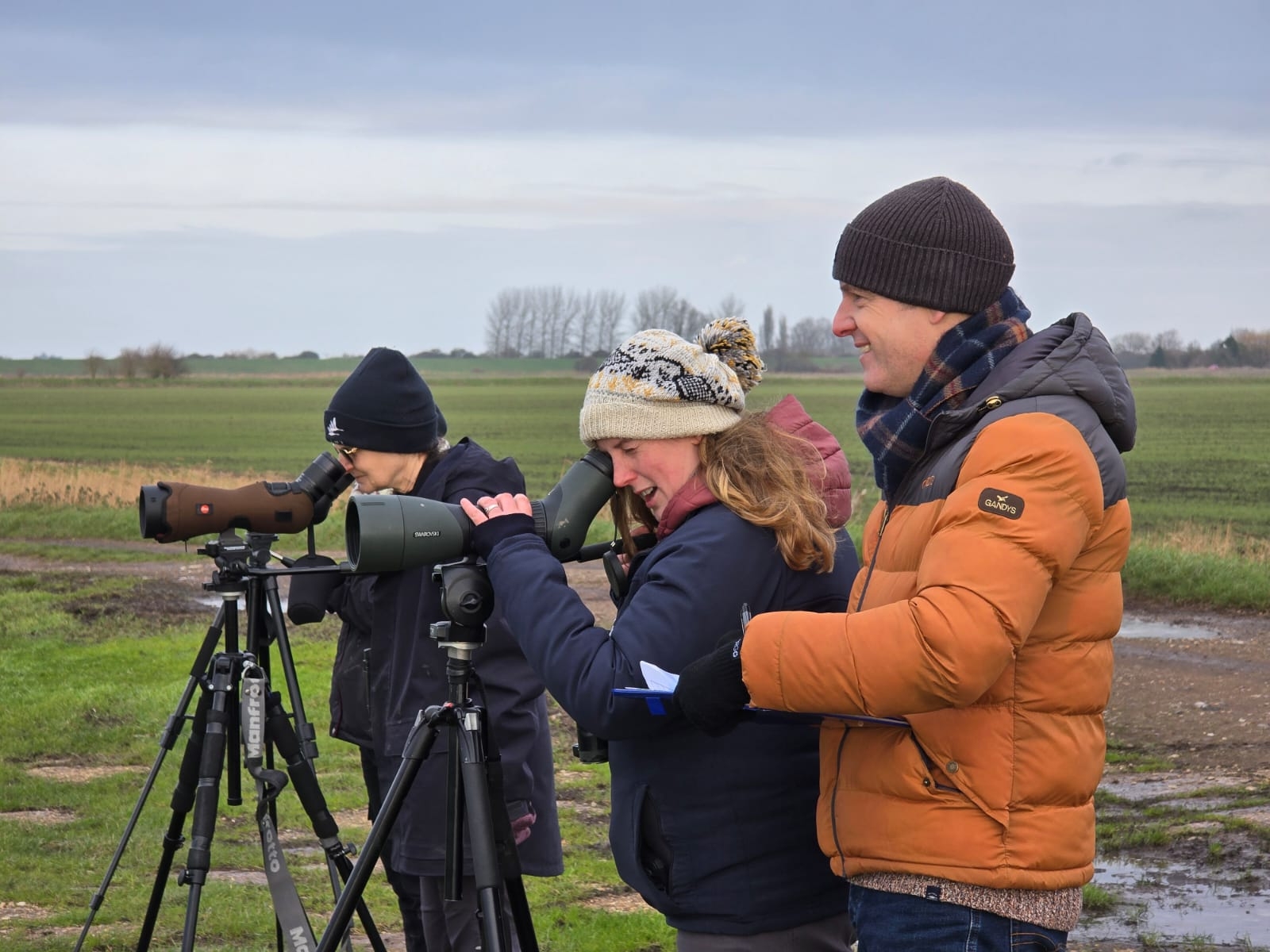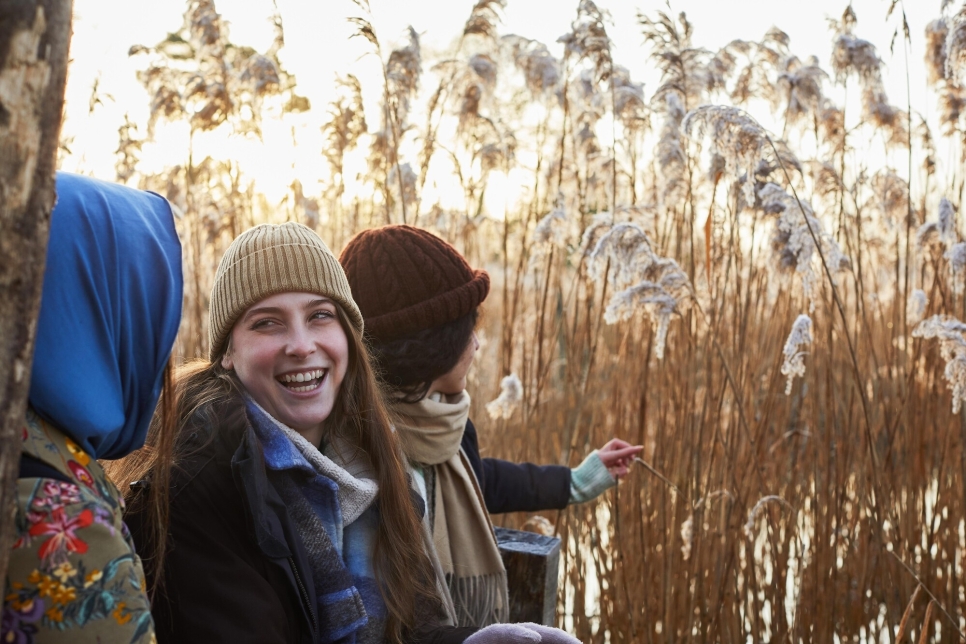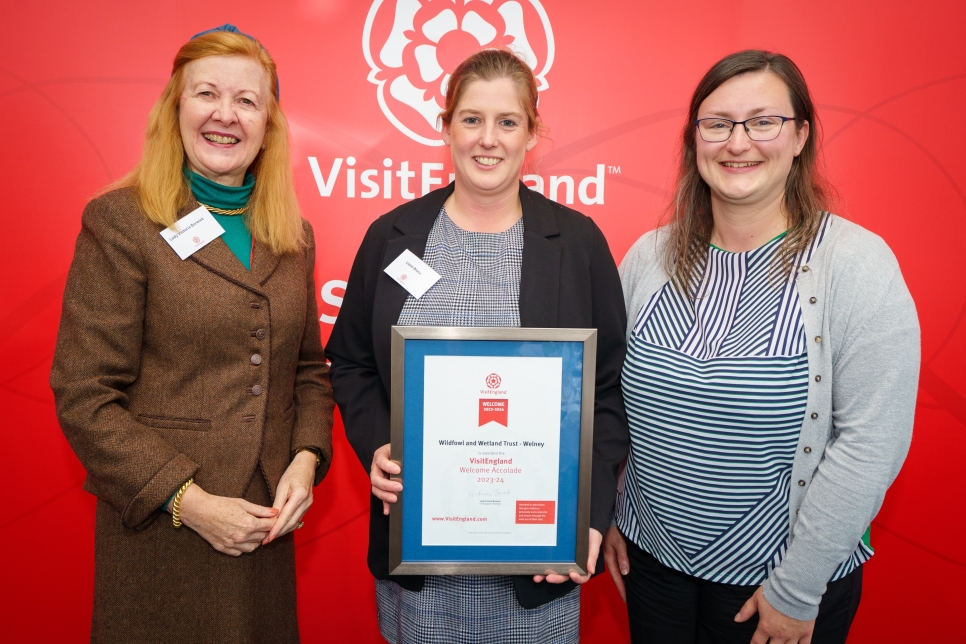Festival of Swans
The Festival of Swans weekend was a fantastic success with hundreds of people enjoying our wetland reserve and the special activities we had available. Special guest, Mike Dilger, joined a panel of speakers talking about Bewick's swans.
TV Presenter and Naturalist, Mike Dilger, was the special guest at this year’s Festival of Swans event, adding to a line-up of speakers celebrating Bewick's swans and the conservation work to protect them. Numbers of wintering swans, ducks and wading birds peak on the Ouse Washes this month, and along with a mix of low water levels and cold conditions an incredible winter wetland scene awaited our guests and visitors.
The relatively low water levels meant that Mike Dilger only needed to wear welly boots to walk along the edge of the lagoon in front of the main hide and feed the swans – slightly less water to contend with since his last time feeding the swans in a dry suit with a floating barrow. Visitors enjoyed watching Mike feed the swans, some of which had joined him bird watching from the hide or hearing about his adventures filming with WWT earlier in the day.
The WWT conservation team joined us to talk to visitors about our work monitoring and protecting Bewick's swans. Kane Brides, Monitoring Officer, has travelled to Artic Russia to tag Bewick’s swans and Iceland to tag whooper swans as part of our ongoing monitoring of these two migratory species. Dr Kevin Wood, Principal Research Officer, has monitored the wintering population of Bewick’s and whooper swans around the Ouse Washes to assess this stage of their year, and whether it has played into the decline of the Bewick’s swan population.
Photojournalist, Ben Cherry, was a volunteer with the Flight of the Swans project and so has travelled the autumn migration of the Bewick’s swans from Arctic Russia to the UK alongside them. Dutch Bewick’s swan expert, Wim Tijsen, will be talking about how the Bewick’s swans fair in the Netherlands, on his 25th year of following the Bewick’s to the UK.
Thankfully the low water levels also meant that the Welney Wash Road has been open all winter, as well as all the hides and footpaths on the reserve. Pools of water in front of the hides and a few shallow flooded washes around the reserve are the current roosting options for the swans, meaning that a few prime locations on the reserve are the best spots for viewing the Bewick’s and whooper swans. The Festival of Swans weekend provided the perfect opportunity for visitors to find out more about the rarest swan species found in the UK, from some of the key people working to protect them and their wetland homes.



